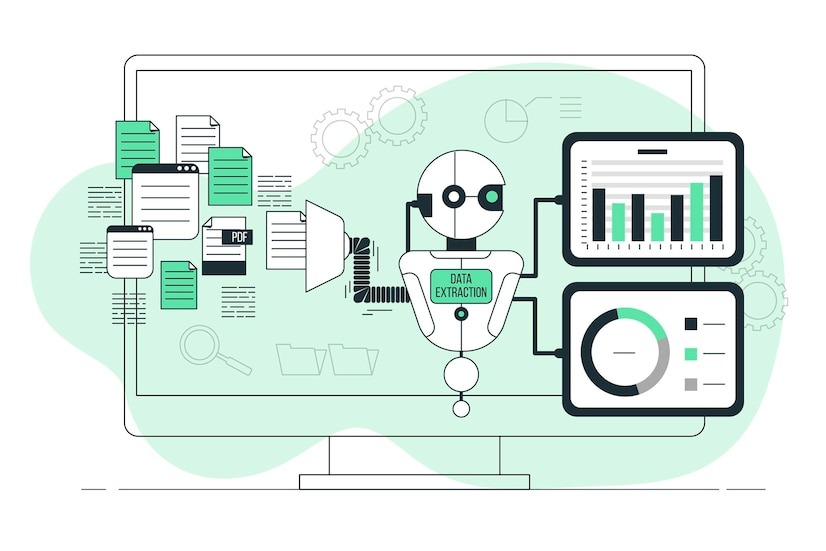Finance Teams Can Use Assistance
While marketing, sales and engineering have all accepted the advantages of software transforming their fields and eradicating repetitive tasks, finance has been left behind. Thanks to advancements like smart homes, daily functions have become more available in everyone’s life. But, finance teams still depend upon conventional procedures for important yet non-strategic work. Therefore, companies are caught up in time-intensive and laborious tasks that drain effort, resources, mental energy and money. Hence, technology has caught up with the finance industry.
Through automated bookkeeping, businesses can reclaim valuable time to concentrate on more impactful tasks. This article will explore the concept of automated bookkeeping services, its crucial importance and implications.
What is Automated Bookkeeping?
Automated bookkeeping transforms how procedures and tasks are conventionally performed using AI technology. By integrating automated bookkeeping services, the gruelling hours spent by employees on specific tasks are reduced. Rather than staying put with legacy systems, technological advancements like optical character recognition (OCR) and machine learning (ML) take over and automate these procedures.
Imagine the following scenario: traditionally, businesses would have spent countless hours categorizing numerous expense reports into the general ledger to review spending. It was an extraordinarily time-intensive and monotonous task. To make things worse, employees were forced to depend on outdated data for critical business decisions due to the delay caused by this conventional process. However, with finance automation, employees now have access to real-time data on spending. It enables companies to adjust their finances quickly, ensuring more reliable insights. Hence, automated bookkeeping provides various benefits, such as streamlined onboarding procedures through seamless integration, precise spending insights, and reduced conventional expense reports.
Why Should Companies Make the Switch?
Inertia usually poses significant challenges for employees when accepting new systems and procedures. The execution of a new system is time-intensive and needs a big learning curve. But, finance teams rely on outdated procedures even though they are distant from ideal solutions.
The question of the return on investment is also linked to adopting automated bookkeeping. After all, if the present situation and procedure have brought business this far, why make a change? The answer is straightforward: efficiency, accuracy and user-friendliness. By adopting automated bookkeeping, companies can improve these points of operations quickly.
Efficiency
Automated bookkeeping transforms how businesses handle procedures that have conventionally been time-intensive and tedious. For example, the difficult task is dealing with expense reports. With automation, these procedures become more effective and disappear altogether, much to everyone’s relief.
Consider the new employees onboarding and offering them corporate cards. Usually, this is done systematically, resulting in a lengthy and tedious process. However, automated bookkeeping can easily streamline and expedite this process, allowing the onboarding of multiple hires. It saves time and ensures a smoother onboarding experience.
Moreover, automated bookkeeping helps automate bulk payments and effortlessly establishes constant expenditure policies among organizations. It reduces the need for manual intervention and authorizes one to manage these tasks more effectively, sparing valuable time for other critical responsibilities.
Ease of Cost and Use
Automated bookkeeping in this advanced age prioritizes user-friendly design. Gone are the days of working with ambiguous interfaces and confusing features among multiple dashboards. Performing critical financial tasks such as bill payments is straightforward, with a few clicks and drags. However, the clarity of use loses its charm if the adoption procedure becomes counterintuitive.
Regarding the complex nature of finance automation, one may assume that executing such tools is equally complex. But this is far from the truth. Advanced automated bookkeeping tools streamline an effortless and swift transition; some even provide switching reports to smoothen the procedure.
So, worried about the cost? There is no need because many platforms offer free comprehensive automation solutions.
Accuracy. Due to the vast amount of information that finances teams have to manage, human error is an unfortunate reality that can’t be ignored. As workload continues to grow without an increase in resources, automated bookkeeping emerges as a vital solution to bridge this gap. With time, technology has improved in terms of speed and accuracy. Automated bookkeeping has kept pace with these advancements. Advanced AI technology offers reliable and precise data, all while delivering outcomes rapidly.
Conclusion
The finance world can take benefit from automated bookkeeping solutions. While other departments have accepted technological advancements to simplify their operations, finance lagged, depending on conventional and time-intensive processes. However, integrating automated bookkeeping software in the company can reclaim valuable time and concentrate on more strategic tasks. With technology advancing quickly, automated invoicing and bookkeeping provide an essential solution for finance teams to optimize their operations and save resources.






Comments